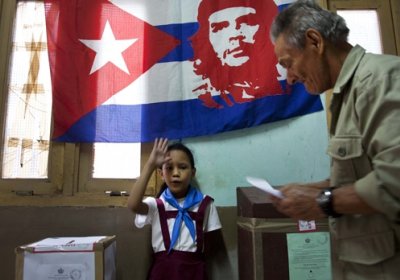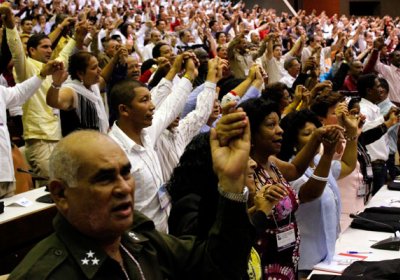What’s the fate of Cuba in the age of Trump? It is not an easy question to unravel, but Canadian author and journalist Arnold August provides some answers in his latest book, Cuba-US Relations: Obama and Beyond.
Raul Castro
Although the media spends a lot of time portraying Cuba as a “dictatorship”, it has barely covered the fact that Cubans have once again begun a process of electing officials, starting from the local and going all the way up to the national parliament.
As thousands joined Cuban President Raul Castro to say goodbye to his brother, Fidel, the younger brother imparted one of Fidel's dying wishes: that his image and name never adorn public places, from streets and parks to government institutions.
"Fidel was always against the cult of personality until his dying days," said Raul Castro. "He was consistent with that attitude, insisting that after his death his name and figure never be used to name plazas, avenues, streets and other public places, as well as the building of statues."
 Supports of the 'no' vote celebrate in Athens on the night of July 5.
Leaders of Latin American left-wing governments have congratulated the Greek government and its people after Greece's historic July 5 referendum. Voters rejected debt austerity proposals by Greece's European lenders.
Venezuelan President Nicolas Maduro said: “The ‘no’ vote in Greece is a victory against the financial terrorism carried out by the International Monetary Fund (IMF).”
Supports of the 'no' vote celebrate in Athens on the night of July 5.
Leaders of Latin American left-wing governments have congratulated the Greek government and its people after Greece's historic July 5 referendum. Voters rejected debt austerity proposals by Greece's European lenders.
Venezuelan President Nicolas Maduro said: “The ‘no’ vote in Greece is a victory against the financial terrorism carried out by the International Monetary Fund (IMF).”






